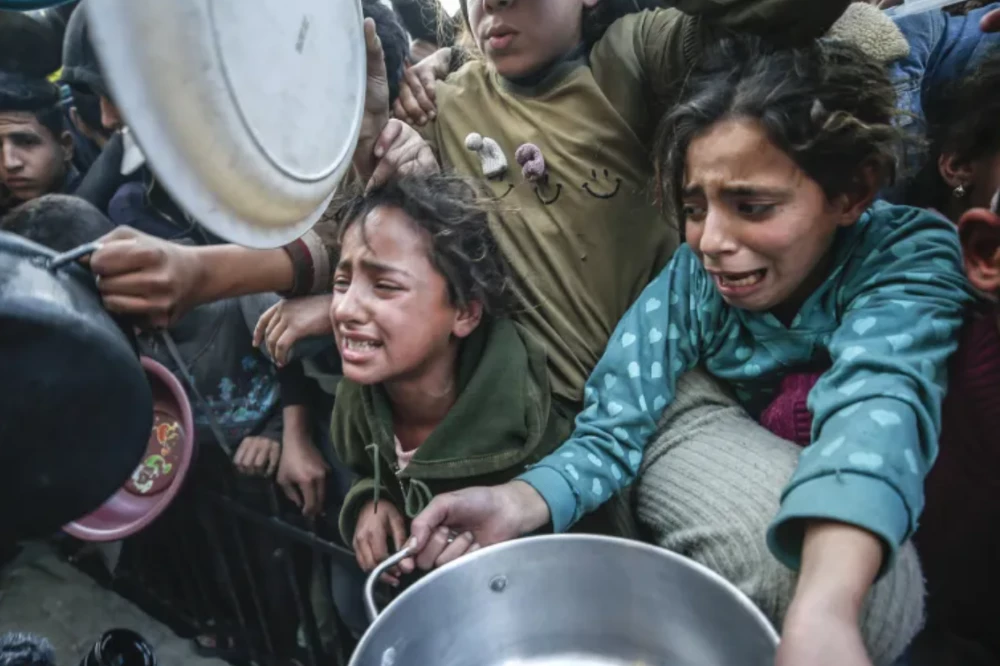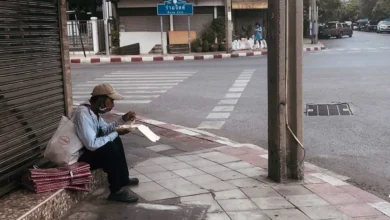The United Nations’ food agency has confirmed that all its food supplies in the Gaza Strip have run out, as Israel’s blockade enters its eighth week, pushing over 400,000 people closer to starvation.
The World Food Programme (WFP) said it delivered its final stocks of food to community kitchens earlier this week. Those meals are expected to be fully depleted within days.
“The situation inside the Gaza Strip has once again reached a breaking point,” the WFP said in a statement on Friday. “People are running out of ways to cope, and the fragile gains made during the short ceasefire have unravelled.”
The organisation warned that, unless humanitarian access is restored immediately, it will be forced to suspend all remaining food assistance operations.
During the temporary ceasefire earlier this year, limited supplies had been stockpiled. But those reserves have now been exhausted. According to WFP data, the cost of basic food items has surged by 1,400 percent, making what little remains inaccessible for most families.
Local aid kitchens, already stretched, are now feeding only half the population and providing just a quarter of their daily caloric needs.
Gaza’s Government Media Office said that at least 52 people — 50 of them children — have already died from hunger or malnutrition. Over a million children in Gaza face daily food insecurity.
Reporting from Gaza City, Al Jazeera’s Hani Mahmoud said hunger is becoming more visible on the streets. “People are hungry. They’re already rationing supplies,” he said. “It’s not just the organisations, it’s also families running out of food.”
The WFP previously supported 25 bakeries across Gaza, but they were all forced to close on 31 March due to a lack of flour and cooking fuel. Household food parcels, intended to feed families for two weeks, were also fully distributed earlier that month.
No aid — humanitarian or commercial — has entered Gaza since 2 March, when Israel sealed all border crossings. More than 116,000 metric tonnes of food are currently stockpiled by WFP and partners, ready to enter Gaza once access is granted.
Israeli officials have defended the blockade as necessary to prevent Hamas from gaining access to aid supplies, though the group denies any diversion of food. Last week, Israeli Defence Minister Yoav Gallant said the closure was designed to “pressure” Hamas into a deal.
International condemnation of the strategy has been mounting. On Wednesday, Germany, France and the United Kingdom issued a joint statement calling the blockade “intolerable” and warning that it is increasing the risk of mass starvation and disease outbreaks.
The UN human rights office said the combined effects of the blockade, bombardment, and destruction of essential infrastructure may amount to collective punishment of Gaza’s 2.2 million residents.
It said the Israeli military has deliberately targeted vital civilian infrastructure including water pipelines, sewer systems, ambulances and machinery used in rescue operations, further hampering humanitarian efforts.
Between 21 and 22 April, Israeli air strikes destroyed 36 relief vehicles and machines used for water delivery, sewage management and rubble clearance across three governorates in Gaza, UN officials reported.
Attacks on homes and shelters have also escalated. Between mid-March and late April, there were 229 recorded strikes on residential buildings and 91 on tent encampments for displaced civilians.
Meanwhile, violence continues to flare in the West Bank. UN officials report increasing settler attacks and Israeli military operations, including a large-scale campaign in Jenin and Tulkarm refugee camps now entering its third month. Rights groups say these may amount to forcible transfer under international law.
In Gaza, a truce effort remains stalled. A Hamas delegation is expected in Cairo this weekend for talks mediated by Egypt. The group says it will not agree to a ceasefire that excludes a full Israeli withdrawal and a permanent end to hostilities. Israel has so far only offered temporary pauses in exchange for hostage releases.
Since 7 October 2023, more than 51,439 Palestinians have been killed and 117,416 injured in Gaza, according to Palestinian authorities. Israeli strikes since the most recent ceasefire collapsed on 18 March have killed over 1,900 people.
With famine now looming, the WFP called for immediate access, saying food assistance is ready to be delivered if corridors are opened.
“WFP urges all parties to prioritise the needs of civilians and allow aid to enter Gaza immediately and uphold their obligations under international humanitarian law,” the agency said.







